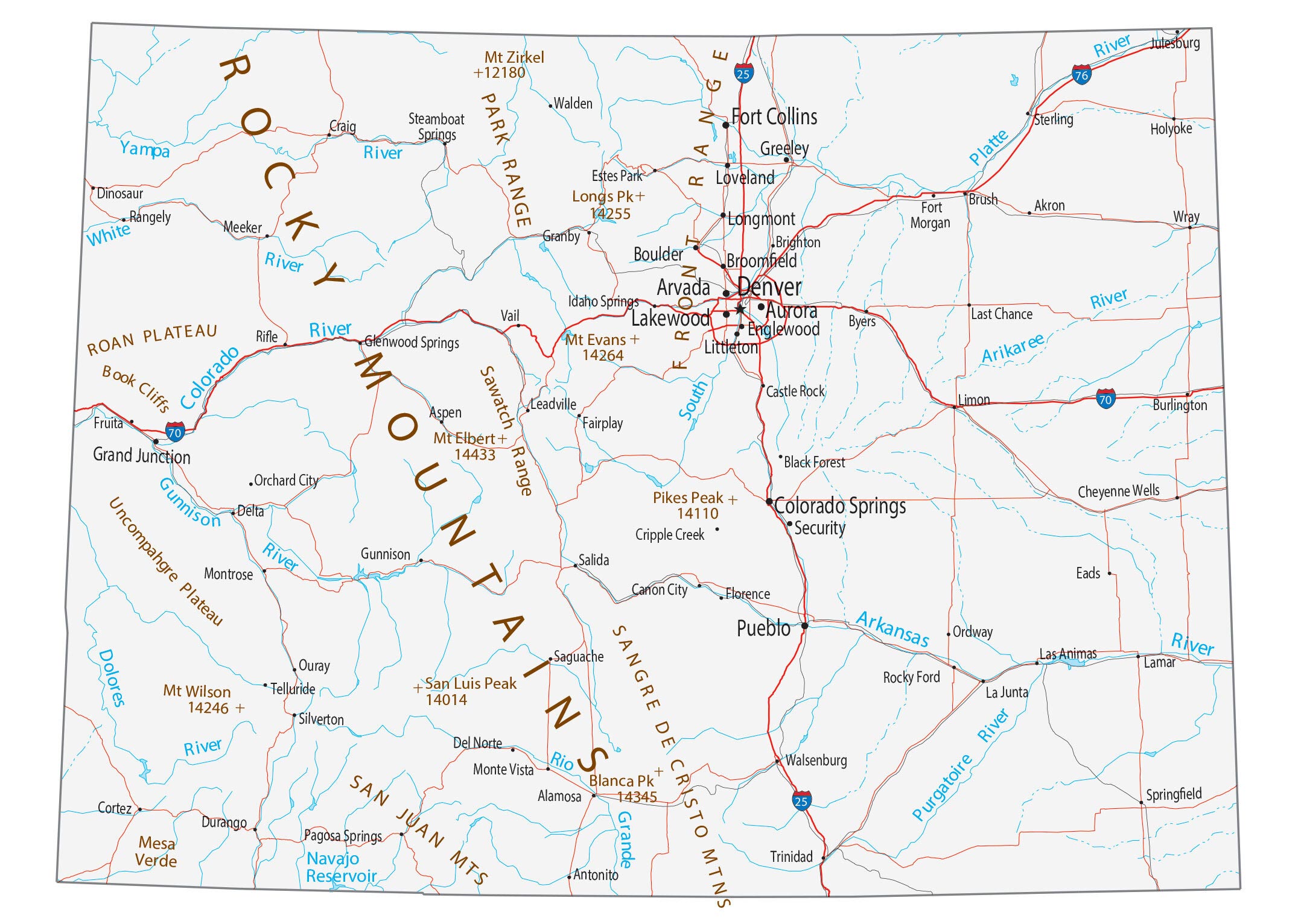Septic systems play a vital role in managing wastewater for properties not connected to municipal sewer systems. In Colorado, regulations ensure that these systems operate effectively while protecting public health and the environment. This article outlines everything you need to know about Colorado Septic Tank Regulations, including permits, compliance, costs, and local resources.
- State-Specific Regulations Information
- Compliance Information
- Cost Information
- Local Resources & Contact Information
- Supportive Resources
- Contacts for More Information
- FAQs About Colorado Septic Tank Regulations
State-Specific Regulations Information
Installation Permits
In Colorado, installing or replacing a septic system requires a permit. Local health departments issue these permits to ensure septic systems meet Colorado on-site wastewater regulations.
- Requirements: Before obtaining a permit, a site evaluation and soil testing must be conducted by a certified professional.
- Costs: Permit fees typically range from $300 to $1,000, depending on the county.
- Application Process: Submit a detailed system design and site plan to the local health department for approval.
Septic Tank Size and Placement
Proper sizing and placement of septic tanks are critical for their performance.
- Tank Size: Colorado health department rules require the tank size to be based on the number of bedrooms in a home and anticipated wastewater flow. For example, a three-bedroom home may require a 1,000-gallon tank.
- Placement Rules: Septic tanks must be at least 50 feet from wells and water sources and 10 feet from property lines. Drain fields must also follow similar setback requirements.
Wastewater Disposal
Colorado sewage disposal regulations manage wastewater to ensure public health and environmental safety.
- Disposal Rules: Drain fields, sand filters, or advanced treatment systems disperse treated wastewater based on specific site conditions.
- Prohibited Methods: Direct discharge of untreated wastewater onto land or into water bodies is strictly forbidden.
Maintenance and Pumping
Routine maintenance is essential for the longevity of a septic system.
- Pumping Schedule: Most tanks should be pumped every 3 to 5 years, though high-usage households may require more frequent pumping.
- Maintenance Requirements: Homeowners must keep records of inspections, pumping, and repairs to comply with Colorado health department septic rules.
Compliance Information
Legal Compliance Guidelines
Failing to adhere to Colorado wastewater management laws can result in significant consequences.
- Penalties: Non-compliance may lead to fines ranging from $500 to $10,000. In severe cases, property owners may face legal action.
- Inspections: Systems must pass periodic inspections, especially during property sales, to ensure compliance.
Environmental Protections
Colorado’s environmental guidelines emphasize the importance of protecting natural water resources.
The regulations aim to prevent groundwater and surface water contamination.- Advanced treatment systems may be required in environmentally sensitive areas.
Cost Information
Septic systems can represent a significant investment, but understanding the costs can help you budget effectively.
Permit Fees
- Costs range from $300 to $1,000, depending on local health department requirements.
Pumping Costs
- Routine pumping costs typically range from $200 to $400, depending on the tank size.
Installation Estimates
- Installing a standard septic system in Colorado can cost between $7,000 and $15,000. Advanced systems, such as mound or aerobic treatment systems, may cost up to $25,000.
Local Resources & Contact Information
For assistance with septic system regulations and services, consider the following resources:
- State Agencies:
- Colorado Department of Public Health and Environment (CDPHE): cdphe.colorado.gov
- Local Health Departments:
- Contact your county’s health department for permits and inspections.
- Certified Professionals:
- Search for state-certified septic system installers and pumpers through CDPHE’s online database.
Supportive Resources
Here are some additional resources to help you navigate septic system regulations in Colorado:
- Downloadable Guides: CDPHE provides a homeowner’s manual for septic system maintenance.
- Trusted Providers: Many local companies specialize in septic tank installation and maintenance. Check reviews and certifications before hiring.
- Infographics: Online tools and visual aids, such as drain field sizing charts, can simplify the planning process.
Contacts for More Information
4300 Cherry Creek Dr. S
Denver, CO 80246-1530
Phone: (303) 692-2000
TDD Line: (303) 691-7700
Conclusion
Understanding and adhering to Colorado Septic Tank Regulations is essential for homeowners to avoid penalties and maintain environmentally friendly wastewater systems. By securing the necessary permits, following maintenance guidelines, and budgeting for costs, you can ensure your system operates smoothly for years to come. For further information, contact your local health department or a certified septic service provider.
FAQs About Colorado Septic Tank Regulations
Do I need a permit to install or replace a septic system in Colorado?
Yes, a permit is required for both new installations and system replacements. Applications are processed by local health departments, ensuring compliance with Colorado on-site wastewater regulations. The process includes site evaluations and system design approvals.
What are the typical costs for a septic permit in Colorado?
Permit fees range between $300 and $1,000, depending on the county and the specifics of the project. Additional costs for soil testing and engineering designs may apply.
How far must a septic system be from a well or property boundary?
According to Colorado health department rules, septic systems must maintain:
- A minimum of 50 feet from private wells.
- At least 10 feet from property lines.
These distances ensure safe separation from drinking water sources and neighboring properties.
What maintenance schedule is recommended for septic tanks in Colorado?
Colorado recommends septic tanks be pumped every 3 to 5 years, depending on household size and water usage. Regular inspections are also crucial to ensure compliance with Colorado wastewater management laws.
Can advanced treatment systems be used in Colorado?
Yes, advanced treatment systems are often required in areas with challenging soil conditions or environmental sensitivities. These systems provide additional wastewater treatment before discharge.
Who oversees septic system regulations in Colorado?
The Colorado Department of Public Health and Environment (CDPHE) oversees septic regulations, with local health departments managing permit approvals and inspections.
What happens if I fail to follow Colorado septic regulations?
Non-compliance can result in penalties, including fines ranging from $500 to $10,000, as well as mandatory corrective actions to address system deficiencies.
How do I determine if my property is suitable for a septic system?
A percolation test or soil evaluation is required to assess your property’s suitability. Certified professionals evaluate factors such as soil absorption rates and water table depth.
Can I install a septic system on a small lot in Colorado?
Lot size requirements vary by county, but most local rules specify minimum acreage to accommodate a drain field and maintain necessary setbacks.
Septic Regulations in Rural Areas: Essential Guide for Rural Property Owners
The Role of Perforated Pipes in Drain Fields
What Happens During a Pumping Service?
Septic Tanks vs. Sewer Systems | Choosing the Right Option
Directory | Virginia Septic Service Providers | Part 2
Directory | Virginia Septic Service Providers : Best Professionals | Part 1







